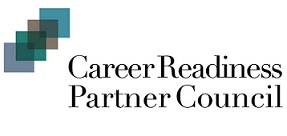Last month, Adobe surveyed 1,068 American hiring managers seeking insight into what the gatekeepers of tomorrow’s careers believe are the most critical skills, habits and credentials for job-seekers in the 21st century labor market.
The result? An overwhelming number of responses emphasizing the importance of digital literacy, creative thinking, problem-solving and flexibility. Hiring managers rejected the notion that students in technical fields fundamentally lack the creativity succeed (only 36% agree), but even more believe that positions requiring technical skills also benefit from creative thinking (81% agree).
Technical skills are still viewed as one of the top three factors identified as having gained the most value over the last five years (46% identified as one of top three skills gaining value), suggesting that competency remains crucial to employer hiring decisions. Also in the top three, however, were problem solving/critical thinking (51%) and creativity/innovation (47%).
Taken as a whole supports the need for more high-quality CTE, with its emphasis on skill building through career pathways and comprehensive, integrated programs of study. 
Unsurprisingly, many policies prioritized by CTE programs of study, including internships, mentors and courses specifically designed to prepare students for the world of work by teaching both broad and specific skills, ranked high on the list of proposed solutions to boost preparedness (see chart, at right).
Other findings concur with similar past surveys of employer needs, including the impression that students are underprepared for jobs when entering the workforce, with 69% of hiring managers agreeing that new job seekers lack the necessary skills for success and 61% calling lack of communications skills as a top factor in underpreparedness.
Read the full report here.
Evan Williamson, Communications Associate


 A
A 